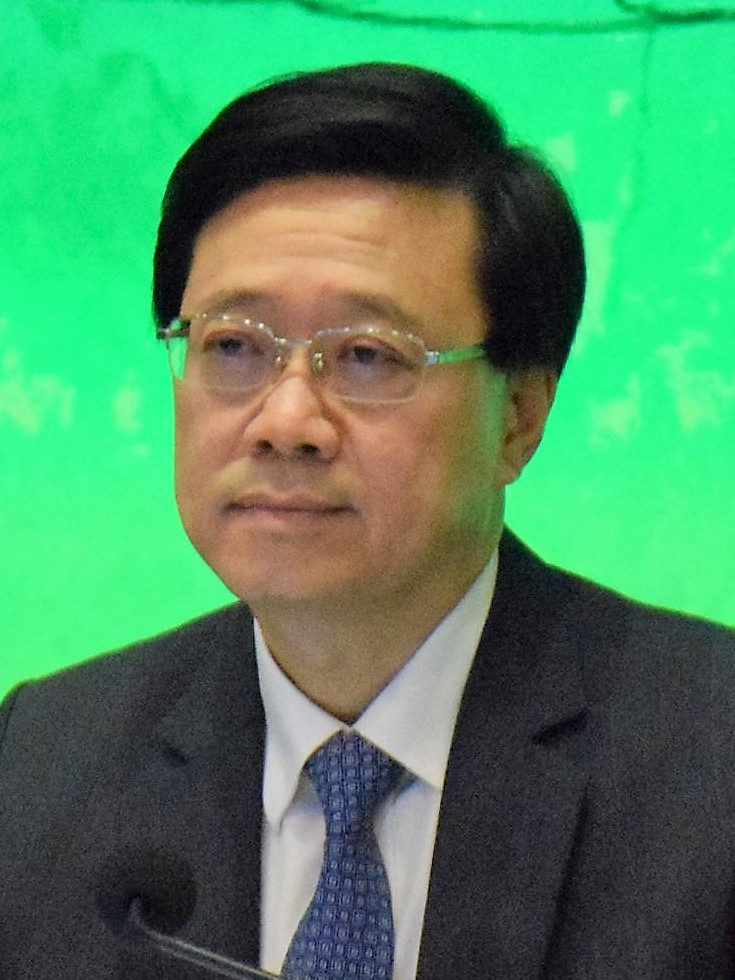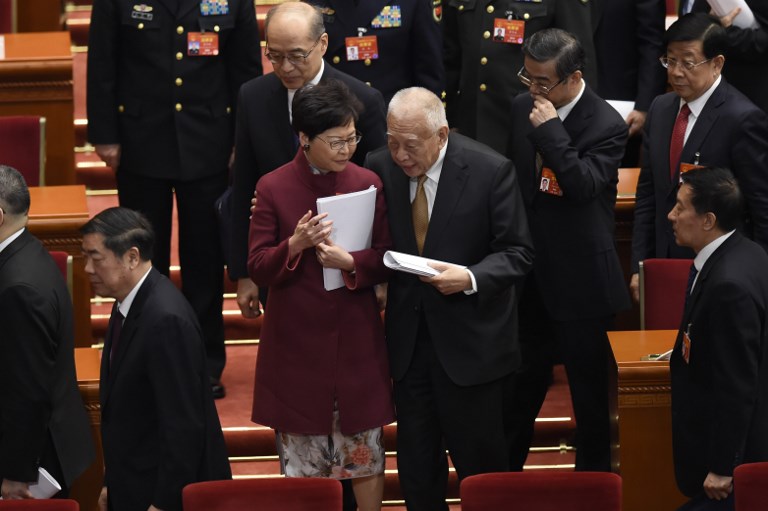Hong Kong Chief Executive Carrie Lam today declined to engage with a warning from a senior Taiwanese official that the self-governed island could issue travel alerts to citizens heading to Hong Kong if the SAR follows through with a proposed change to its extradition law.
At the same time, however, the Hong Kong government appeared to cave to demands from business groups worried about the amendments, announcing today that a number of economic crimes would be removed from the list of extraditable offenses.
Under the controversial proposed changes to its law, Hong Kong would be allowed to extradite citizens to China and Taiwan on a case-by-case basis, something forbidden under the city’s current rules. The proposal prompted a swift and sustained outcry, and the Hong Kong government has sought to position the amendment as a law and order measure — pointing to the case of a Hongkonger wanted for a high-profile murder in Taiwan.
Rights groups, pro-democracy figures, and the business community, however, have cautioned that a change in the rules could pave the way for, among other things, dissidents and white collar criminals being extradited to the mainland to face sham trials.
The proposal has also sparked concerns in Taiwan, which fears its citizens living in or traveling through Hong Kong could face unfair extradition to the mainland, which considers Taiwan a rogue province.
On Monday, several media outlets reported that the deputy minister of Taiwan’s Mainland Affairs Council, Chiu Chui-cheng, warned that Taiwan would take steps to protect its citizens if the rule change was approved.
“We will remind our nationals that you may face potential risk if you travel to Hong Kong – we may even issue a travel alert for Hong Kong,” he said in an interview with Ming Pao.
Asked about the warning at a press conference today, however, Hong Kong Chief Executive Lam said she did “not wish to comment on any particular comments made by external parties, except to say that we are doing it really to ensure public safety and to ensure justice is done.”
“So, we will continue with our work,” she added, according to a transcript of her remarks issued by the government. “When we are in a position to announce what then will happen, as far as the legislative amendments are concerned, we will do so in an early opportunity.”
Chiu, for his part, had suggested that if justice had truly been Hong Kong’s top priority, it could have cooperated on the murder case on a one-off basis without a major legislative change, though it’s unlikely that would be possible under the current law, which expressly forbids agreements with “the Central People’s Government or the government of any other part of the People’s Republic of China,” including Taiwan.

Meanwhile, RTHK reports, Security Secretary John Lee today said that nine economic crimes previously considered extraditable offenses would be excluded under the new law. The crimes involve things like intellectual property issues, stock trading, and bankruptcy proceedings, among others.
Ever since the changes were proposed, the government has sought to dampen the backlash by pointing out that the law contains human rights safeguards and requires any extraditable offense to be a crime in Hong Kong as well as the requesting country.




